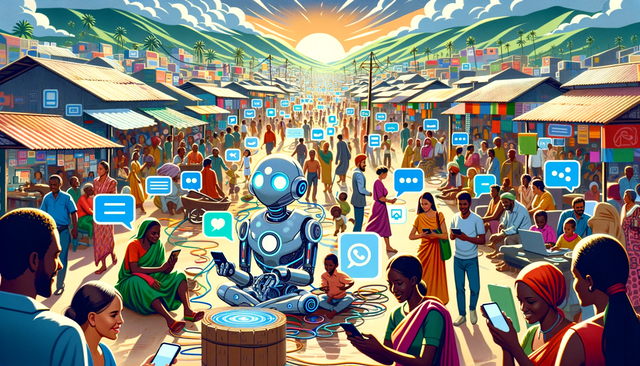
How Chatbots Improve International Development Programs
Chatbots with advanced artificial intelligence capabilities are emerging as powerful tools in enhancing international development outcomes. These digital assistants are reshaping online interactions and are increasingly leveraged to address complex challenges in developing countries.
Their impact on international development can be seen across education, healthcare, agriculture, and governance sectors, by offering scalable, cost-effective, and innovative solutions.
Education sector
Chatbots can democratize access to learning resources, especially in remote or underprivileged areas. They can provide personalized tutoring, language learning, and educational support to students, overcoming barriers of distance and the scarcity of qualified teachers. By offering interactive and adaptive learning experiences, chatbots can help improve literacy rates and educational outcomes, thus contributing to the broader goals of reducing poverty and enhancing social equity.
Healthcare sector
In regions where healthcare infrastructure is limited or where there’s a shortage of medical professionals, chatbots can offer preliminary medical consultations, symptom checking, and basic healthcare guidance. This can improve access to healthcare information, reduce the burden on healthcare systems, and enable early detection and treatment of diseases. Moreover, chatbots can provide critical public health information and awareness, thereby playing a vital role in disease prevention and health promotion.
Agriculture Sector
Farmers can receive real-time information on weather forecasts, pest control, crop rotation strategies, and market prices through simple messaging interfaces. This information can help them make informed decisions, increase crop yields, and improve their livelihoods. Chatbots can also facilitate access to financial services, such as microloans and insurance, further supporting economic development in rural areas.
Governance sector
Chatbots can enhance public service delivery and citizen engagement. They can provide a direct channel for citizens to access information about public services, submit complaints, or provide feedback. This can lead to more transparent, responsive, and efficient government services, fostering trust and participation in the democratic process.
Chatbot Examples
Read the posts below to learn about the successful implementation of chatbots in international development and how you can do the same.
Obviously, chatbot deployment requires careful consideration of challenges such as digital literacy, language diversity, and ensuring ethical AI use.
Despite these hurdles, the potential of chatbots to transform international development is immense, offering a pathway to more inclusive, equitable, and sustainable development outcomes. Through their ability to provide personalized, accessible, and scalable solutions, chatbots represent a promising tool in the quest to address global development challenges.











